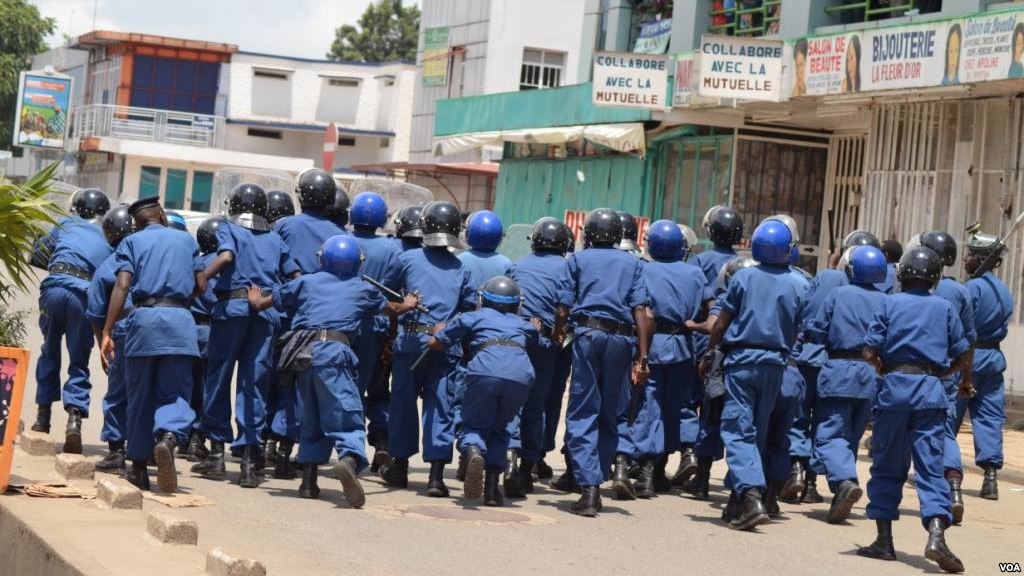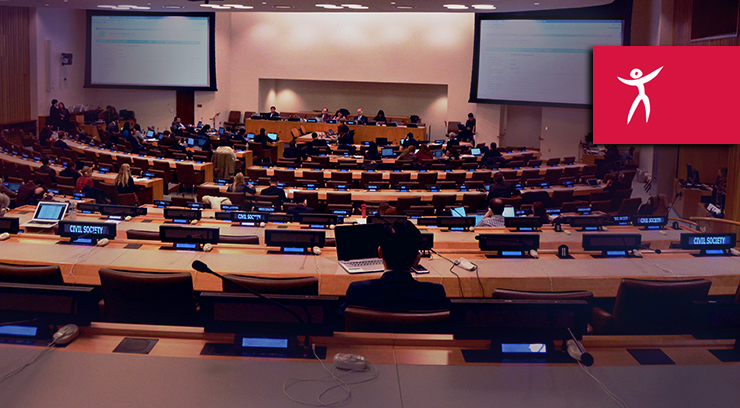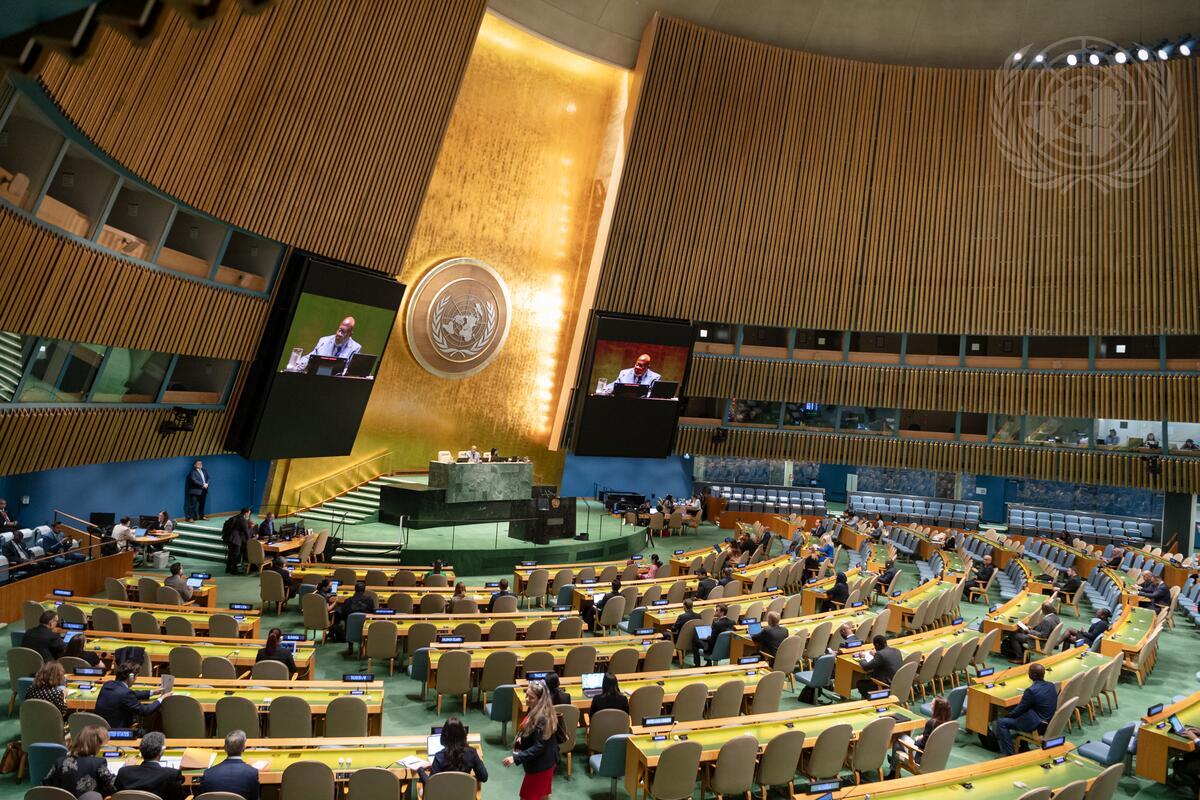The latest session of the ECOSOC NGO Committee – the body of governments that considers NGO applications for accreditation – saw members withdrawing accreditation to a number of Turkish NGOs on improper grounds, voting against consultative status for an organisation working on religious freedom, and denying a Brazilian organisation the right to speak.
‘This session political interests repeatedly distorted decision making and Committee procedures and precedent were wilfully overlooked,’ said ISHR’s Eleanor Openshaw. ‘Increasingly, the Committee seems to embrace its reputation as the ‘anti-NGO’ Committee.’
Brazilian NGO Conectas Human Rights, was denied the opportunity to make a general statement. Their representative had wanted to highlight the importance of meaningful participation of Global South organisations in the UN, and how NGO participation is critical to ensuring implementation of the flagship UN 2030 Agenda for sustainable development. In the one hour discussion over what would have been a 3-minute statement, China noted that the NGO Committee didn’t have time to listen to NGOs. A precedent set at the last session for an NGO general statement to be delivered was ignored. The US requested that the record show that that precedent still stood.
‘While a small handful of Committee members spoke up for civil society participation during the session, too many used their membership of the Committee to block and bluster,’ said ISHR’s Eleanor Openshaw.
The NGO Committee considered 524 applications for consultative status of which just over half were approved. As is common when facing the Committee, human rights organisations faced far greater obstacles to being granted accreditation than other kinds of NGOs.
Repetitive questioning of NGO applicants was rife. The UK said some of the questions posed to applicants ‘quite frankly seem spurious.’ Armenia regretted that Armenian NGOs had been consistently mistreated, arguing that the right to pose questions had been abused. A handful of NGOs have now received over 70 questions from the NGO Committee. The International Dalit Solidarity Network (IDSN) was asked another question by India – the 78th it has received from that state since 2008.
‘The International Dalit Solidarity Network has been asked some questions several times over. They have provided comprehensive answers to those questions and yet are asked the same question again,’ said Eleanor Openshaw. ‘There is simply no justification for this practice.’
When the Iran Human Rights Institute was asked about its independence from funders, the US delegate accused Iran of ‘harassment’ of the NGO, pointing out that this question had been asked of them on at least 5 separate, prior occasions. The Iranian delegation then ‘reformulated’ its question asking for financial records and a list of planned projects.
A host of observer States spoke in support of the Inimõiguste Instituut, the first and oldest human rights organisation in Estonia. This was after Russia had criticised one of the NGO’s projects with the Crimean Tatar community in Ukraine and had asked the organisation to explain its collaboration with local ‘extremist’ partners. The Estonian delegate said NGOs should be free to choose what they carry research out on and Finland asserted that this application had been postponed several times without any clear justification.
A vote was taken in regard to the application of Christian Solidarity Worldwide (CSW), which has been pending since 2009. Greece spoke in favour of the organisation, noting that it had cooperated fully with the Committee over this time, responding to over 80 questions. The UK, in its capacity as observer state, noted that it failed ‘to understand what possible questions could remain in good faith about their credentials.’ Despite this, only four of the nineteen member states voted in favour of granting CSW accreditation.
A handful of Turkish NGOs or NGOs until recently working in Turkey found their accreditation recommended for withdrawal or new applications recommended for closure. The Committee considered these cases in relation to the deregistration of the organisations in Turkey, despite the fact that registration is not a criterion upon which ECOSOC accreditation is based. Furthermore, the degregistration process in Turkey has been roundly criticised. Several national, regional and international organisations wrote to the new UN Secretary-General and ECOSOC members to express grave concern about the lack of due process in these cases and urge the Committee’s recommendations to be rejected.
ECOSOC – the parent body of the NGO Committee – will meet at the end of April to consider the recommendations of the Committee.
‘Deep concerns about the practice of the NGO Committee have been expressed by States, UN officials and NGOs for years now. Changing the practice of the Committee is now in the hands of ECOSOC,’ said Ms Openshaw. ‘If ECOSOC believes in civil society engagement they can no longer dodge the need for reform.’
Contact: Eleanor Openshaw, New York Director, International Service for Human Rights, at [email protected]




